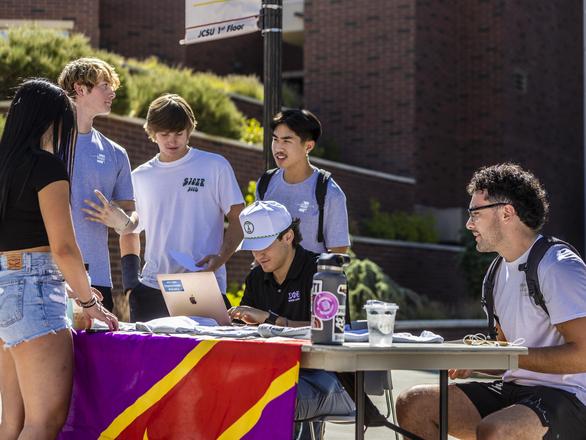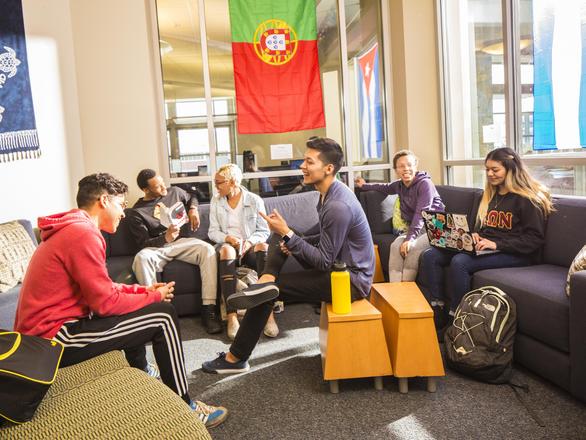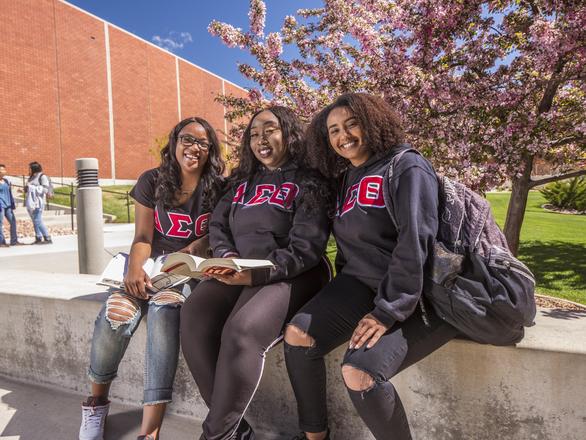
Fraternity and sorority life events
There are currently no events
Did you know?
Fraternity and sorority members are significantly more satisfied with their college experience than non-affiliated students.
85% of the Fortune 500 executives are members of fraternal organizations.
Fraternity and sorority members have a higher graduation rate than non-members.
Over 85% of student leaders on some 730 campuses are involved in fraternities and sororities.
43 of the 50 nation's largest corporations are led by fraternity and sorority members.
Less than 2% of an average college student's expenses go toward fraternity and sorority dues.
Statistics provided by the North-American Interfraternity Conference (NIC), Center for Fraternity and Sorority Research (CFSR), and United States Office of Education.



